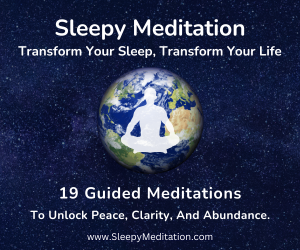Breaking the Stigma: Accessing Vital Mental Health Resources for a Healthy Mind
Mental health is an essential component of overall well-being, yet it is often overlooked or stigmatized in society. Many individuals may feel ashamed or embarrassed to seek help for mental health issues, leading to a lack of access to vital resources that can support their mental well-being. In this article, we will explore the importance of breaking the stigma surrounding mental health and provide guidance on accessing crucial mental health resources for a healthy mind.
The Importance of Mental Health
Before delving into the topic of accessing mental health resources, it is crucial to understand the significance of mental health in our lives. Mental health encompasses our emotional, psychological, and social well-being, affecting how we think, feel, and act. A healthy mind is essential for coping with stress, building and maintaining relationships, and making informed decisions. Neglecting mental health can have detrimental effects on various aspects of our lives, including our physical health, work performance, and overall quality of life.
Breaking the Stigma
Despite the importance of mental health, there is still a lingering stigma surrounding mental illness in society. Stigma can prevent individuals from seeking help for mental health issues, leading to untreated conditions and worsening symptoms. It is essential to break the stigma surrounding mental health by promoting open conversations, challenging stereotypes, and advocating for mental health awareness. By normalizing discussions about mental health, we can encourage individuals to seek help without fear of judgment or discrimination.
Accessing Mental Health Resources
Fortunately, there are numerous mental health resources available to support individuals in managing their mental well-being. From therapy and counseling services to support groups and online resources, there is a wide range of options for individuals seeking help for mental health issues. Here are some key resources that can help individuals access vital mental health support:
Therapy and Counseling Services
Therapy and counseling services provide individuals with a safe and confidential space to explore their thoughts, feelings, and behaviors. Therapists and counselors are trained professionals who can offer guidance, support, and strategies for managing mental health issues. Whether you are dealing with anxiety, depression, trauma, or other mental health concerns, therapy can help you gain insight, develop coping skills, and improve your overall well-being.
Support Groups
Support groups bring together individuals who are facing similar mental health challenges, providing a sense of community, understanding, and solidarity. Joining a support group can help you feel less alone in your struggles and provide you with valuable insights and perspectives from others who have been through similar experiences. Support groups can be in-person or online, offering flexibility and accessibility for individuals seeking peer support.
Online Resources
Online resources, such as mental health websites, forums, and apps, can provide individuals with valuable information, tools, and support for managing their mental health. These resources can offer self-help tips, coping strategies, mental health assessments, and access to mental health professionals. Online resources can be particularly beneficial for individuals who prefer to seek help anonymously or who may have limited access to traditional mental health services.
Common Questions About Mental Health Resources
As individuals navigate the process of accessing mental health resources, they may have various questions and concerns. Here are some common questions about mental health resources and their answers:
How do I know if I need mental health support?
If you are experiencing persistent feelings of sadness, anxiety, stress, or other emotional struggles that are impacting your daily life, relationships, or work, it may be beneficial to seek mental health support. Trust your instincts and reach out for help if you feel overwhelmed or unable to cope with your emotions.
What if I can’t afford mental health services?
There are several options available for individuals who cannot afford traditional mental health services. Many therapists offer sliding scale fees based on income, and some community organizations and non-profit agencies provide low-cost or free mental health services. Additionally, online resources, support groups, and self-help tools can be accessible at little to no cost.
How do I find the right mental health resource for me?
Finding the right mental health resource for you may involve some trial and error, as different individuals may respond better to certain types of support. Consider your specific needs, preferences, and goals when exploring mental health resources. Research different options, ask for recommendations, and trust your intuition when selecting a mental health resource that feels like a good fit for you.
Conclusion
Accessing vital mental health resources is essential for maintaining a healthy mind and well-being. By breaking the stigma surrounding mental health, promoting open conversations, and advocating for mental health awareness, we can create a supportive environment for individuals seeking help for mental health issues. Whether through therapy, support groups, online resources, or other avenues, there are numerous options available to support individuals in managing their mental well-being. Remember that seeking help is a sign of strength, and you deserve to prioritize your mental health and well-being. Take the first step towards accessing mental health resources today and empower yourself to lead a healthier, happier life.




































































